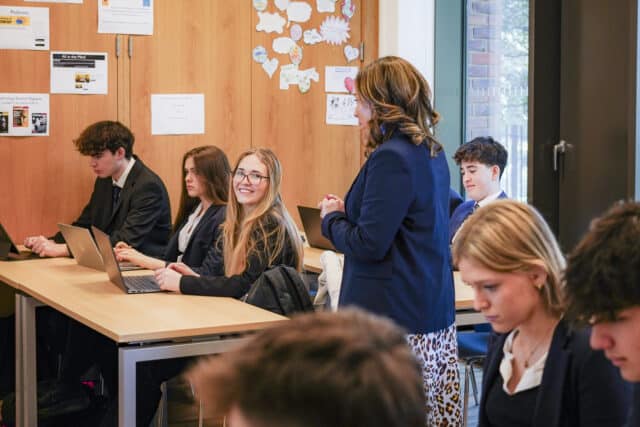Blog
The Kindness Economy: What schools can learn from Gen Z

Shaun Fenton
Headmaster, Reigate Grammar School
Read the blog
There is a quiet revolution taking place in our schools. It is not being driven by new technology, league tables, or government policy, but by something more profound — a generational reimagining of what really matters.
This generation of young people — Generation Z — is creating what we might call a kindness economy. In their world, empathy, integrity, and purpose are the new currency of respect.
They are redefining success not by status or salary but by impact, contribution, and authenticity.
At first glance, it is easy to assume that social media has made this generation more distracted or self-absorbed. Yet the opposite is often true. Beneath the surface, they show extraordinary social awareness and moral energy. They care deeply about fairness, inclusion, sustainability, and mental health. They expect their schools — and the adults who lead them — to be principled, transparent, and genuinely caring.
At Reigate Grammar School, we see this every day. The students who give up weekends for volunteering projects; the sixth formers mentoring younger pupils; the groups raising money and awareness for global causes — they are generous, socially engaged, and impatient for change. They have an instinctive understanding that kindness is not weakness; it is leadership.

A new kind of learning culture
Recent UK and university research supports what schools like ours witness firsthand. Studies at the University of Cambridge have shown that deliberate teaching of empathy and perspective-taking not only improves relationships but also enhances creativity and engagement. In other words, kindness strengthens learning.
National initiatives such as the “Skills for Living” pilot in Greater Manchester, developed in collaboration with education and business leaders, are embedding empathy, communication, and digital awareness into mainstream education. Employers, universities, and communities alike are recognising that the most successful young people are not just those with the highest grades, but those with the strongest values.
This reinforces what we at Reigate have long believed: education must reach beyond the exam hall. It must prepare young people to live purposefully, relate thoughtfully, and lead with humanity.
What schools can learn from this generation
1. Purpose must be visible.
Students are most inspired when they can see the meaning behind their learning. When a chemistry lesson links to climate action, or a drama project explores social justice, knowledge gains moral weight. Purpose turns learning into legacy.
2. Authenticity builds trust.
Today’s students can sense the difference between principle and pretence. They respond not to slogans on walls but to integrity in action — how teachers speak to them, how leadership handles challenge, how a school lives its values when no one is watching.
3. Wellbeing is the foundation of success.
This generation talks openly about mental health and expects their schools to listen. That openness is a strength. Schools that place kindness at the heart of their culture nurture resilience more effectively than any exam strategy ever could.
4. Character education must be intentional.
The so-called “soft skills” of communication, collaboration, adaptability, and empathy are now among the hardest to master — and the most prized by universities and employers. These qualities should not be left to chance but cultivated with the same rigour as academic achievement.
5. Education must model the world we want to create.
If young people are to become compassionate leaders, they need to see compassion modelled in the adults who guide them. When schools work in partnership with communities, when they serve rather than isolate, they remind students that education and service belong together.

Kindness as a legacy
As Reigate Grammar School marks its 350th anniversary, we have been reflecting on what truly endures. Buildings and technologies evolve, syllabuses come and go, but values remain. The kindness economy that Gen Z is building aligns perfectly with what we have always believed: that the measure of a school lies not only in the grades it awards but in the character it shapes.
Kindness, empathy, and purpose are not extras — they are the essentials of a good education and the foundation of a better world. If we listen to this generation and learn from their priorities, we may rediscover what education has always been about: helping young people not just to make a living, but to make a difference.